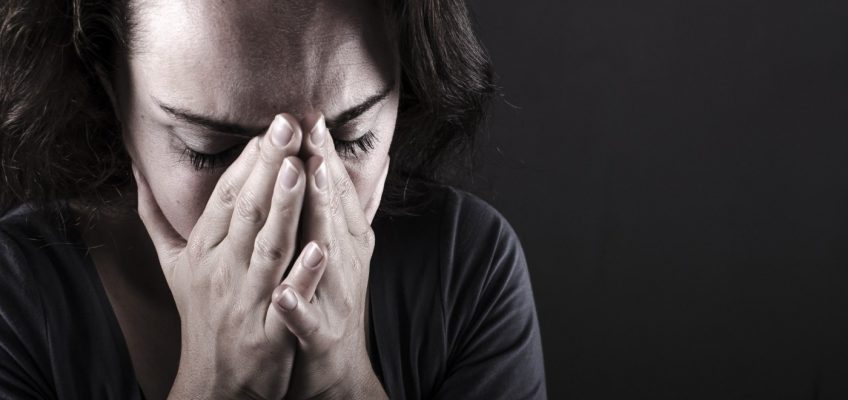In many cultures throughout history, spring and summer have been associated with rebirth, life and vitality, and are celebrated. But for some people, this time of year is anything but celebratory. For them, warm weather brings on feelings of anxiety and persistent agitation.
In the popular consciousness, Seasonal affective disorder is most often associated with the feelings of depression that arise during cold, overcast winter months — but there is a warm-weather variant as well.
Jami Dumler, regional clinic director for Thriveworks in Pennsylvania, said warm-weather SAD is more associated with anxiety and agitation than depression, and is less common.
“With winter seasonal depression, that might look like increased sleeping, weight gain, lacking energy, withdrawing from your social circles, versus that more agitated summer SAD [which] might look like insomnia, weight loss, agitation or mood swings and anxiety as a whole,” Dumler said.
Winter SAD’s onset is associated with the changing of the seasons and the cold weather, being stuck indoors, shorter days and less sunlight exposure. However, Dumler said, there is a correlation between extreme heat and agitation. People on psychiatric medications such as antidepressants or mood stabilizers, for example, may have more difficulty regulating their body’s temperature, she said.
Dr. Dhanalakshmi Ramasamy, psychiatrist at Pennsylvania’s Lehigh Valley Health Network, said increased sunlight also can lead to sleep disturbances, which can have a downstream effect on mental health. However, Ramasamy added, SAD during warm weather months is not quite as well understood as the winter variant and more research is needed.
Dumler added that for people who are already prone to depression or anxiety, the onset of summer SAD may have a compounding effect. Even beyond SAD, summer and spring can create mental health challenges for some. Suicides and suicide attempts tend to be higher in spring.
“It can be a challenging time of year when folks are turning a corner and seeing the joy and brightness of summer, getting out and getting active, and if you are still struggling, that can feel really alienating and lead to people stepping more into that suicidal space,” Dumler said.
The warm weather months and all that go with it can cause flare-ups or problems for people with other mental health conditions or mental illnesses, doctors said.
Dr. Jordan Holter, psychiatrist with St. Luke’s Penn Foundation, said going to pools or the beach may have impacts on people with body dysmorphia, as wearing more revealing clothes may be triggering.
Holter added that for children with conditions like autism spectrum disorder or who have intellectual disabilities, the loss of a structured environment may be disruptive and exacerbate their condition. For children with ADHD, depression or anxiety, the return to school and all the stresses and pressures that come with it may lead to visits to the emergency room, he said.
“By having them be outside of a structured setting, that can oftentimes exacerbate those symptoms and that can cause anxiety,” Holter said. “Oftentimes, what happens too is they call it like a like a drug holiday — people that have been diagnosed ADHD are on stimulants oftentimes, will frequently be recommend to go off of the medication for a brief period of time, usually during the summer months where they don’t really have the same kind of academic demand, where they need to focus and concentrate. Because of that, you can oftentimes have a remission, reemergence of those symptoms.”
Ramasamy said that overall, LVHN sees fewer children presenting to emergency departments during the summer but those who do show up usually present with more severe and complex issues.
All the mental health professionals The Morning Call spoke to said that taking care of your mental health during summer is possible with available tools.
Dumler said that for her patients, she prioritizes social connection, physical health and mental health.
“Often, if you have both or all three of those things going, you’re going to have more impact than just focusing on one,” Dumler said.
Getting exercise, eating a healthy diet with lots of fiber, and taking time to plan things with family and friends can all play a part in improving mental health during the summer. She added that light therapy can help in treating both summer and winter variants of SAD.
Holter said selective serotonin reuptake inhibitors, antidepressants and traditional therapy are, of course, options as well.
Ramasamy said one of the things she recommends is making lifestyle modifications that allow people to increase the levels of vitamin D in their bodies. She said another is adopting good sleep hygiene habits like going to bed at a consistent time and not spending time on devices right before bed.
“We cannot exclude suicidal thoughts and things like that,” Ramasamy said. “If it’s getting worse, of course, they can go to the ER, call 911, the suicide hotline [988] to get the support they need.”


Leave a Reply